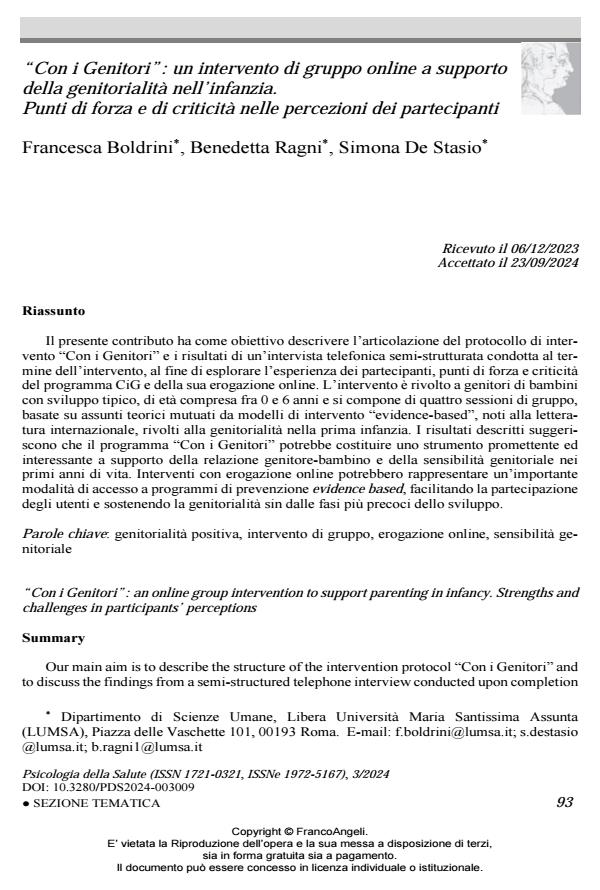“Con i Genitori”: an online group intervention to support parenting in infancy. Strengths and challenges in participants’ perceptions
Journal title PSICOLOGIA DELLA SALUTE
Author/s Francesca Boldrini, Benedetta Ragni, Simona De Stasio
Publishing Year 2024 Issue 2024/3
Language Italian Pages 20 P. 93-112 File size 294 KB
DOI 10.3280/PDS2024-003009
DOI is like a bar code for intellectual property: to have more infomation
click here
Below, you can see the article first page
If you want to buy this article in PDF format, you can do it, following the instructions to buy download credits

FrancoAngeli is member of Publishers International Linking Association, Inc (PILA), a not-for-profit association which run the CrossRef service enabling links to and from online scholarly content.
Our main aim is to describe the structure of the intervention protocol “Con i Genitori” and to discuss the findings from a semi-structured telephone interview conducted upon completion of the intervention. The interview aimed to explore participants’ experiences, specifically re-garding their perceptions of the strengths and limitations of the CiG program, including its online delivery. The intervention is targeted at parents of typically developed children aged 0 to 6 years and consists of four group sessions. These sessions are grounded in theoretical princi-ples derived from internationally recognized, well known, evidence-based models focusing on early childhood parenting. The results suggest that the “Con i Genitori” program holds prom-ise as a valuable tool for enhancing the parent-child relationship and promoting parental sensi-tivity during early childhood. Furthermore, online delivery of such interventions may represent a crucial strategy for broadening access to evidence-based prevention programs, improving user engagement, and supporting parenting from the earliest stages of child development.
Keywords: positive parenting, group intervention, online delivery, parental sensitivity
Francesca Boldrini, Benedetta Ragni, Simona De Stasio, “Con i Genitori”: un intervento di gruppo online a supporto della genitorialità nell’infanzia. Punti di forza e di criticità nelle percezioni dei partecipanti in "PSICOLOGIA DELLA SALUTE" 3/2024, pp 93-112, DOI: 10.3280/PDS2024-003009